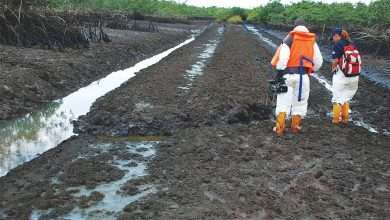
On 6 December 2024, the Court of Appeal handed down a landmark judgment in the case of Alame & Others v Shell PLC and The Shell Petroleum Development Company of Nigeria Ltd [2024] EWCA Civ 1500 considering the test for causation and the correct approach to case management in relation to environmental claims.
The appeal successfully challenged a March 2024 decision which required the Claimants to link specific damage to individual oil spills at the pleadings stage. By rejecting the use of a “global claim”, the Court of Appeal has set an important precedent, enabling claimants to bring forward complex environmental cases involving multiple pollution events without needing to prove total responsibility by a single polluter.
The underlying dispute concerns claims by communities in the Niger Delta region in Nigeria, who allege that they have been subject to hundreds of oil spills, which have devasted their land, waterways and drinking water.
Lord Justice Stuart-Smith (with whom Lord Justice Males, and Lord Justice Bean agreed), gave his reasons as follows:
- The concept of “global claims” originates in decisions of the English and Scottish courts concerned with the proof of causation in contractual disputes relating to delay or disruption in the course of building projects. These are “all or nothing” claims, in the sense that they are claims for a single amount that covers multiple alleged causes of loss, without separating or attributing specific amounts to each cause.
- The Claimants had never adopted the “global claims” approach as the basis upon which they seek and intend to prove causation. In these circumstances, it was wrong to impose upon the Claimants the need for their claims to be progressed on the basis that they are “global claims”: they should instead be tried through the selection of lead cases.
Lord Justice Males, in agreement, also added that there was no pleading that the concept of global claims as applied in English or Scottish law in the context of building disputes is recognised by Nigerian law, let alone that it is recognised in any wider context.
The Court of Appeal also provided valuable guidance in relation to the case management of these types of claims, noting that:
- There was “substantial inequality of arms” in terms of access to information and funding as between Shell and the communities seeking redress which required the Court to ensure that the parties were on an equal footing and this objective should inform all case management decisions.
- The process of disclosure was “one of the most powerful tools available for achieving justice”.
The judgment can be found here.
Anneliese Day KC of Fountain Court Chambers acted for the successful Appellants leading Edward Craven of Matrix Chambers, Alistair Mackenzie of 2 Temple Gardens and George Molyneaux of Blackstone Chambers, and instructed by Daniel Leader and Matthew Renshaw of Leigh Day.
Credit: Fountain Court




